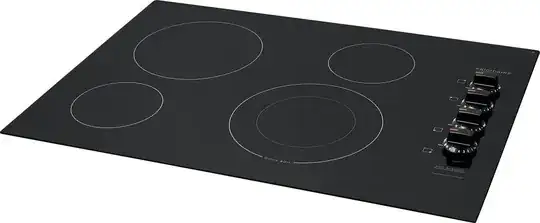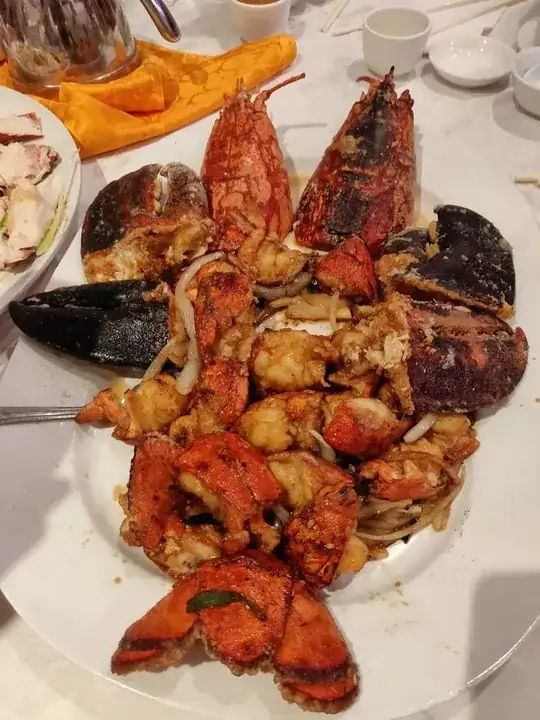Short answer: you can't, but probably not for the reason you think.
Longer answer: the phrase you're quoting above, 干燒/乾燒, means "dry-fried", which generally (and somewhat paridoxically) refers to putting food through a brief and very hot shallow fry before the finishing stir-fry. This technique is absolutely doable at home, even on an electric burner as long as you have a good flat-bottomed wok.
So what's the problem? It's that you're using "frozen lobster meat". Thawed lobster meat, with no shells, is already dehydrated and tough due to the freeze-and-thaw process. If you "dry-fry" that meat, it's going to have the texture of vulcanized rubber or even wood.
So, my advice to you is either get a fresh whole lobster, or at least frozen shell-on tails, if you want to try making dry-fried lobster. Or, if you need to use up that bag of frozen lobster meat, batter and deep-fry it instead.



